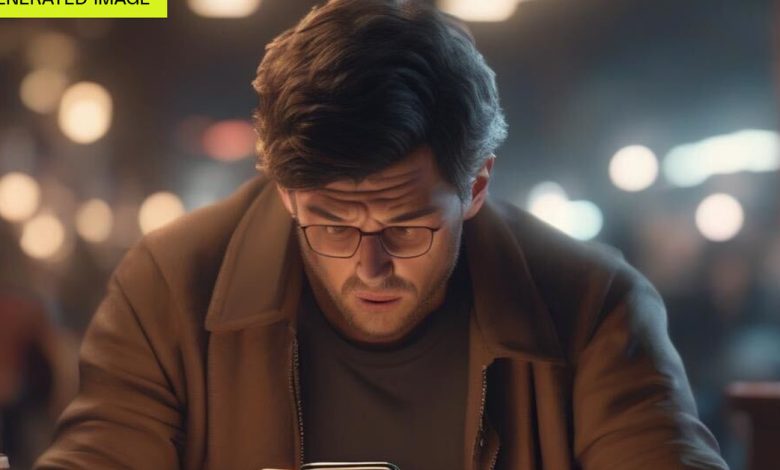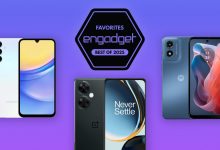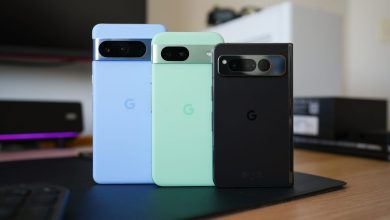AI is booming on the App Store, and developers are taking advantage of it

There’s infinite hype round generative AI this 12 months, and app builders have clearly been paying consideration. AI-focused instruments are blowing up Apple’s App Retailer charts in virtually each class, occupying prime 10 rankings throughout schooling, productiveness, and photograph modifying. Alternatives are notably rife at no cost graphics and design apps, a class that’s positively saturated with AI content material creation instruments.
However amount doesn’t imply high quality — and a fantastic many of those apps are bewilderingly unhealthy. I’ve been utilizing a few of the hottest choices to grasp the state of AI instruments as we head into 2025. And for each severe try and make AI helpful, there appear to be a number of extra designed to money in on the hype: quietly paywalling options they promote behind expensive subscriptions and vastly misrepresenting the outcomes that customers can obtain, if the app even works in any respect.
Round half of the App Retailer’s prime 10 graphics and design apps have “AI” within the title, and three of them are all made by the identical firm — HUBX, an app developer based in 2022 that’s based mostly in Turkey. One in every of its apps, DaVinci AI, is marketed as an AI picture generator with some photograph modifying options. Nearly each device is locked behind a $30 annual (or $5 weekly) subscription charge, and the free trial solely unlocks a subpar text-to-image characteristic that offers you a selection between utilizing unspecified variations of Secure Diffusion and DALL-E AI fashions.
The photographs it produces are low-quality and resized or cropped incorrectly. In-app advertisements seem while you click on just about any hyperlink. The UI is disagreeable to navigate. In case you do pay for the complete model, you’ll be able to’t obtain any edited photographs with out slapping an unsightly watermark on it. And but, it sits far above the rankings for extra recognizable artistic platforms like Microsoft Designer, which has its personal built-in text-to-image AI generator. Adobe Specific is the one design-focused app in the identical class that at the moment ranks above DaVinci AI.
The opposite two high-ranking HUBX merchandise I examined have been simply as lackluster: the Residence AI “inside design” app spits out hallucination-riddled photographs of rooms which might be barely usable whilst idea plans, and the Tattoo AI app refused to work totally. Each apps have the identical characteristic paywalls and evaluate pop-up reminders as DaVinci AI. The copy and pasted App Retailer model historical past notes throughout all HUBX merchandise are additionally devoid of any particulars.
Whereas all three apps characteristic a surprisingly massive variety of five-star critiques, the consumer suggestions throughout social media and the App Retailer feedback is overwhelmingly damaging. A recurring criticism is that customer support is not possible to get ahold of. HUBX by no means responded to my requests for remark.
Apps that clearly promote having AI options are extremely engaging. In line with Sensor Tower, 4 out of the highest 10 most downloaded iOS graphics and design apps within the US to this point this 12 months have had “AI” someplace of their title. That’s truly two fewer than final 12 months, however the most well-liked apps are booming. Photoroom noticed downloads enhance by greater than 160 % since final 12 months. Comparatively, Photoshop Specific downloads on iOS — which additionally contains generative AI options — fell by 21 % throughout the identical interval.
AI-focused artistic apps aren’t all unhealthy, however the app market saturation makes it more durable to seek out the nice ones that use the expertise in additional targeted methods. Apps like Google’s Magic Editor and Adobe Photoshop have particular instruments for eradicating undesirable objects from photographs or inserting new ones in particular locations. Smaller builders that present comparable options and carry out these duties effectively are additionally climbing the App Retailer rankings.
For instance, Photoroom and Picsart AI — all-in-one graphic design apps akin to platforms like Canva and Adobe Specific — are literally fairly good! They rank extremely within the free “Photograph and Video” App Retailer class and supply the same number of options to shortly create on-line content material utilizing premade digital belongings and templates, alongside some AI-powered modifying instruments like automated background and object elimination.
Neither app blew me away, however they did precisely what they marketed: the background elimination options aren’t nearly as good as Canva’s, however they did the job, and object elimination erased undesirable features of photographs even when it wasn’t as convincing as Google’s Magic Editor. Each apps lock a few of their extra premium modifying options and digital belongings behind a $13 month-to-month subscription, which is fairly customary for those who’re being upfront about it — particular person Canva and Adobe Specific subscriptions begin at $15 and $10 per thirty days, respectively, by comparability.
There’s additionally a noticeable divide between the iPhone and iPad charts — only a few AI-focused names seem within the prime 100 free or paid listing for the iPad, which as an alternative characteristic a extra various vary of graphic design apps like Adobe Fresco, Clip Studio Paint, and Canva. And curiously, the listing of prime paid iPhone apps seems very comparable. There’s an abundance of sketching and 3D modeling platforms, premium reference supplies for artists, and instruments that streamline particular artistic duties like eradicating backgrounds and resizing photographs.
The divide suggests the spammy AI app phenomenon is a mass-market one which hasn’t fairly caught on with conventional photographers and illustrators who nonetheless need to use their tried-and-true apps. It additionally means that AI itself holds much less attraction if customers are anticipated to pay for it, which tracks with the form of artistic AI apps that seem most ceaselessly — customized tattoos, brand makers, and inside design — that are expert companies that normally require cost. Individuals don’t essentially need to take away the ability barrier; they need to take away the monetary one.
Utilizing in-app expenses to seem on the App Retailer’s free class, and thereby appeal to a wider viewers, is hardly new. Cellular video games have been making the most of this loophole for years — and what’s now occurring with the artistic AI market seems eerily acquainted.








